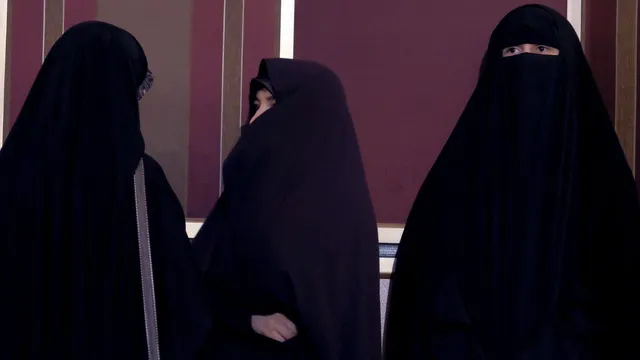- By Shivangi Sharma
- Tue, 04 Nov 2025 03:43 PM (IST)
- Source:JND
A 25-year-old Iranian woman, who was forced into marriage as a child and endured years of physical and emotional abuse, now faces execution unless she pays an enormous “blood money” settlement to her late husband’s family. Goli Kouhkan, currently held in Gorgan Central Prison in northern Iran, has spent the last seven years on death row under the country’s retributive justice system.
Kouhkan was arrested in May 2018 at the age of 18 in connection with the death of her husband and was sentenced under qisas, the Islamic principle of “an eye for an eye.” Unless she secures forgiveness from the victim’s family through financial compensation, her execution could be carried out by the end of this year.
Child marriage remains legal in Iran, with girls as young as 13 allowed to wed with judicial permission, and no comprehensive legislation exists to criminalise domestic violence.
A Childhood Stolen
Born into the Baloch ethnic minority, Kouhkan’s ordeal began at age 12 when she was married off to her cousin. She gave birth to her first child at just 13. Over the years, she suffered frequent beatings and emotional torment. When she once attempted to escape, her father forced her back, saying “a daughter leaves her home only in a funeral shroud.”
ALSO READ: Why Is Canada Rejecting Indian Students’ Visa Applications? 5 Key Facts Explained
The fatal incident occurred when Kouhkan’s husband began violently assaulting their five-year-old son. Terrified, she called a relative for help. A confrontation followed, ending with her husband’s death. Kouhkan herself called an ambulance and reported the incident but was immediately arrested along with the relative. Her family disowned her following the incident.
Life Behind Bars
During her time in prison, Kouhkan learned to read and write, and took up carpet weaving, leatherwork, and marquetry as means of survival economically and psychologically. Prison authorities occasionally organised short visits with her son, who grew up without parents.
After prolonged negotiations, her husband’s family has agreed to spare her life if she pays 10 billion tomans (approximately Rs 93 lakh) and permanently leaves Gorgan. Without this payment, her execution will proceed.
What Is “Blood Money”?
Under Islamic law, diyah (blood money) is financial compensation paid to the victim or their heirs in cases of killing or physical harm. It serves as an alternative to retribution under qisas. Rates of diyah have historically varied depending on gender, religion, and social status and are still applied in modern judicial systems in Iran, Pakistan, Saudi Arabia, and the UAE.

